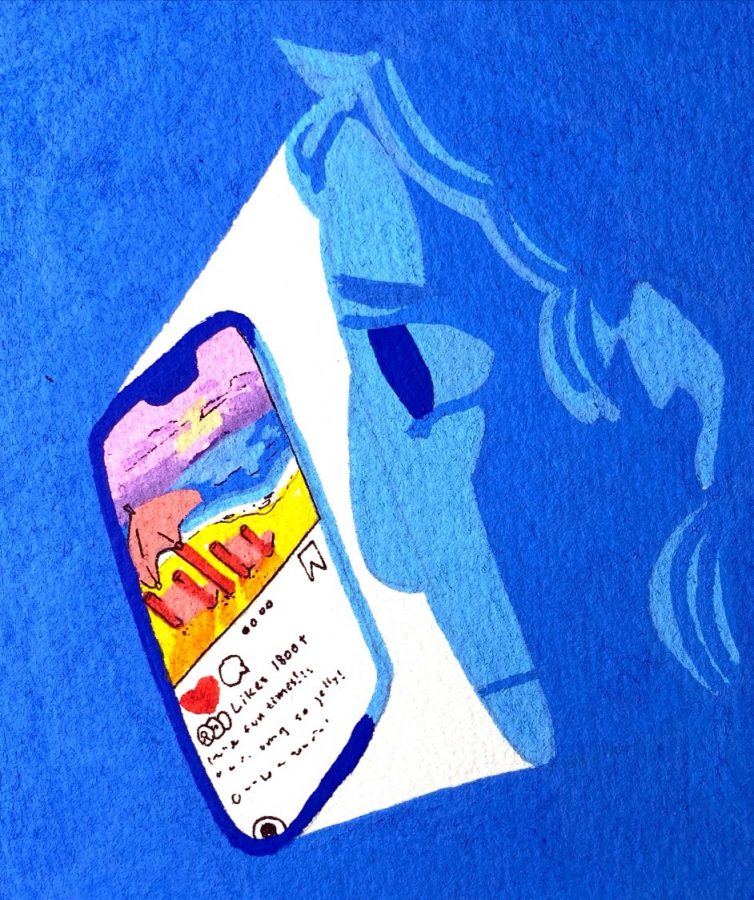Study reveals negative impacts of tourism on Jeju island
October 6, 2021
Editor’s Note: This article first appeared as part of the September 21 flipbook.
A decade ago, the shoreline of Jeju Island, Korea, lay empty. But after visitors came across a local fishing village cafe that gained popularity on social media, tourism increased and gentrified the area, a UT researcher said.
Youjeong Oh, an Asian studies associate professor, published research in early September on how Woljeong, a fishing village located on Jeju island, underwent mass tourism-induced development in the last decade as a result of social media platforms. Lead researcher Oh said tourism has pushed residents out of their homes due to higher property values and caused an increase in littering throughout the village.
“(Tourists) start to penetrate deep into the people’s living spaces. They do not care about what’s happening there. They just take their photos and leave,” Oh said. “The lingering impacts such as pollution, littering (and) environmental devastation are all left for the Jeju people.”
Oh said the new trend for tourism follows what is popular on social media, such as Instagram, which is the leading social media app in Korea.
Woljeong visitors would post scenic pictures of the beach cafe on Instagram, which caused more people to travel to the spot and continue to post their pictures online, Oh said. As the cafe gained popularity, other restaurants and similar cafes began opening to attract more customers.
Residents of Woljeong were offered significantly more money for their farmland in order to replace their land with Airbnbs and locations for tourists, which consequently increased prices in other economic areas, Oh said.
“People are not interested in the actual realities, what they are interested in is the pretty beach, so they can get photos,” Oh said.
Associate journalism professor Gina Masullo said social media platforms idealize places.
“We know that pictures capture people’s attention to a greater extent than words do,” Masullo said. “Users see other pictures, and they might like them or appreciate them, but it also might make them feel jealous, or in the case of a place, make them want to go there.”
International business junior Sophie Zhang said she and her friends visited Jeju island because they wanted to see the sights.
Zhang said she did post the island on social media, similar to other Jeju Island photos they saw on the platform.
“I feel like people who do visit there, they’ve tried to post really pretty pictures and make Jeju seem like this paradise,” Zhang said. “When people go there they have that same expectation of it. I think we definitely tried to take really pretty pictures and post them on social media, just to show everyone else we were at this beautiful island, and we were having a good time.”
Oh said one of the ways the negative consequences of tourism at Jeju Island can be mitigated is through spreading awareness.
“Instagram does not really discuss the history, the memories, the culture and actual lives of a place,” Oh said. “It’s just the photographic quality that matters, and that kind of nature creates a strange relationship between social media tourism and the actual lived experience of a place.”



